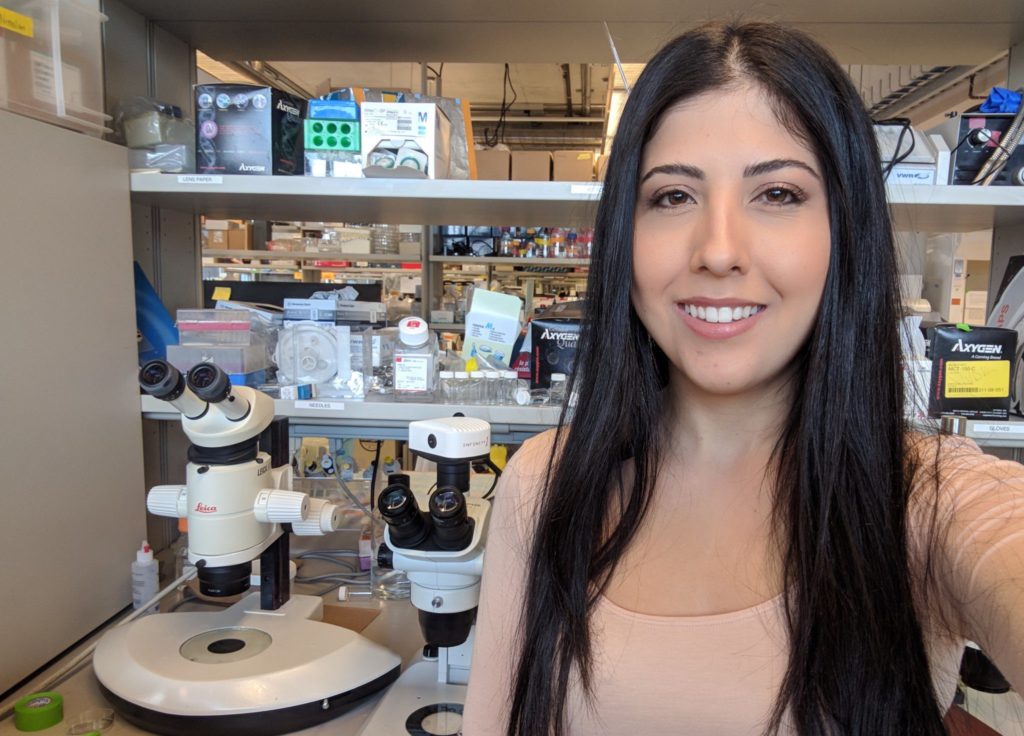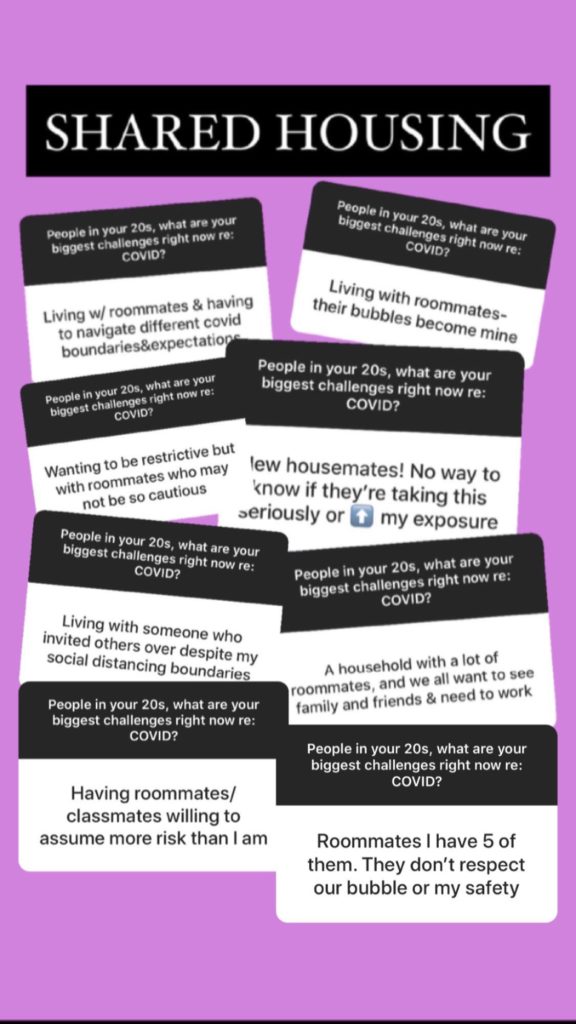Samantha Yammine says her survey was informal; psychologist says that didn’t stop it from being spot-on

A Toronto-based science communicator took to social media earlier this week to detail the issues younger people are grappling with as they deal with social distancing and the pandemic.
Samantha Yammine, who has a PhD in neuroscience from the University of Toronto, received abundant responses from young people and fellow scientists, happy that somebody was putting the issue out there.
After seeing the number of responses, Yammine shared them under her @heysciencesam Twitter, another tool in her social media science communication arsenal.
“Instead of shaming & blaming, I asked them what challenges they’re currently facing with respect to the pandemic,” Yammine tweeted. “Some key themes emerged.”
Yammine’s thread featured explainer graphics covering “other people & social pressures,” “family,” “school,” “shared housing,” “mental health” and one graphic emblazoned with a series of dollar signs.

Yammine regularly uses social media to communicate with the public about science issues. While her social media feeds are full of stern warnings about second waves and admonishments that “the pandemic isn’t over just because you’re over it,” she said it was important to understand why some younger people aren’t complying with social distancing regulations.
Yammine said it was important to show balance; just because some young people were highly visible when they broke the rules, that doesn’t mean everybody in their age group is violating social distancing—and even those who are aren’t always doing it because they don’t care.
“Every one person on your timeline you see having that party might make you think, ‘Everyone who’s young is the worst, they’re so selfish,’” Yammine said. “I just wanted to show that there’s challenges.”
While Yammine was quick to tweet that “this wasn’t a scientific survey,” Abby Goldstein, a professor of psychology at the University of Toronto, admired her style of communication.
“What a wonderful way to communicate what emerging adults have in terms of challenges,” said Goldstein. “What I admire about what (Yammine)’s done is that oftentimes in academia we struggle to translate our findings in what’s easy or what’s publicly accessible.”
Emerging adults, people aged 18-29, are Goldstein’s area of expertise. She was the principal investigator on a study of young adults and their relationship with parents when COVID-19 broke out and helped cast her findings in a whole new light.
Goldstein said what was true 40 years ago isn’t true today. Back then, people in that age group might have been married, owned a home or settled into a career. Now, people in that age range are spending more time navigating their own identities.
“Many risk behaviours have their greatest prevalence during emerging adulthood. It’s not necessarily rebelling, but it’s a search for identity, looking at ‘who am I? How do I want to live my life?’” she said.
The concern that Yammine and Goldstein share is that talking at young people instead of talking with them will shut them down. “I think the idea of putting blame to one particular group is extremely problematic,” Goldstein said. “We need to think about what their needs are and how do we communicate those needs. If we create a ‘one-size-fits-all’ solution, we’re not most likely to reach those groups.”
Yammine used her social media savvy to condense the same thought into the length of a tweet. “There’s a difference between shame & accountability,” she wrote. “Empathy.”
